I want to solve a binary Linear Problem in C# using Microsoft Solver Foundation. I don't know why I get wrong answer. The Objective Value should be 41.1 but I get 213. The value of 5 variables should be 1 and the other ones should be 0. But I get many many variables with wrong values.
The sum of each row of the matrix should be <= 1. That are my constraints, and as you see in Constraint_arr I get the right constraints.
Thanks for any help.
Define decision variables:
SolverContext context = SolverContext.GetContext();
Model model = context.CreateModel();
Decision[,] x = new Decision[name_column.Length, 7];
for (int i = 0; i < name_column.Length; i++)
{
for (int j = 0; j < 7; j++)
{
x[i, j] = new Decision(Domain.IntegerRange(0,1), "x" + i + j);
}
}
for (int i = 0; i < name_column.Length; i++)
{
for (int j = 0; j < 7; j++)
{
model.AddDecisions(x[i, j]);
}
}
Create Constraint and add it to model:
Term[] Constraint_arr = new Term[name_column.Length];
Term tempC;
int jj;
for (int i = 0; i < name_column.Length; i++)
{
tempC = 0;
for (jj= 0; jj < 7; jj++)
{
if(vars_Matrix[i,jj] == 1)
{
tempC += x[i,jj];
}
}
Constraint_arr[i] = tempC;
model.AddConstraints("constraint" + i, Constraint_arr[i] <= 1);
}
Create Objective Function:
Term objective_Func = 0;
Term tempZ;
for (int i = 0; i < name_column.Length; i++)
{
tempZ = 0;
for (int j = 0; j < 7; j++)
{
tempZ += x[i, j] * ratio[i];
}
objective_Func+= tempZ;
}
model.AddGoal("Goal", GoalKind.Maximize, objective_Func);
print the answer:
Solution solution = context.Solve(new SimplexDirective());
Report report = solution.GetReport();
for (int i = 0; i < name_column.Length; i++)
{
for (int j = 0; j < 7; j++)
{
Console.Write(x[i, j]);
}
Console.WriteLine();
}
Console.Write("{0}", report);
Console.ReadLine();


